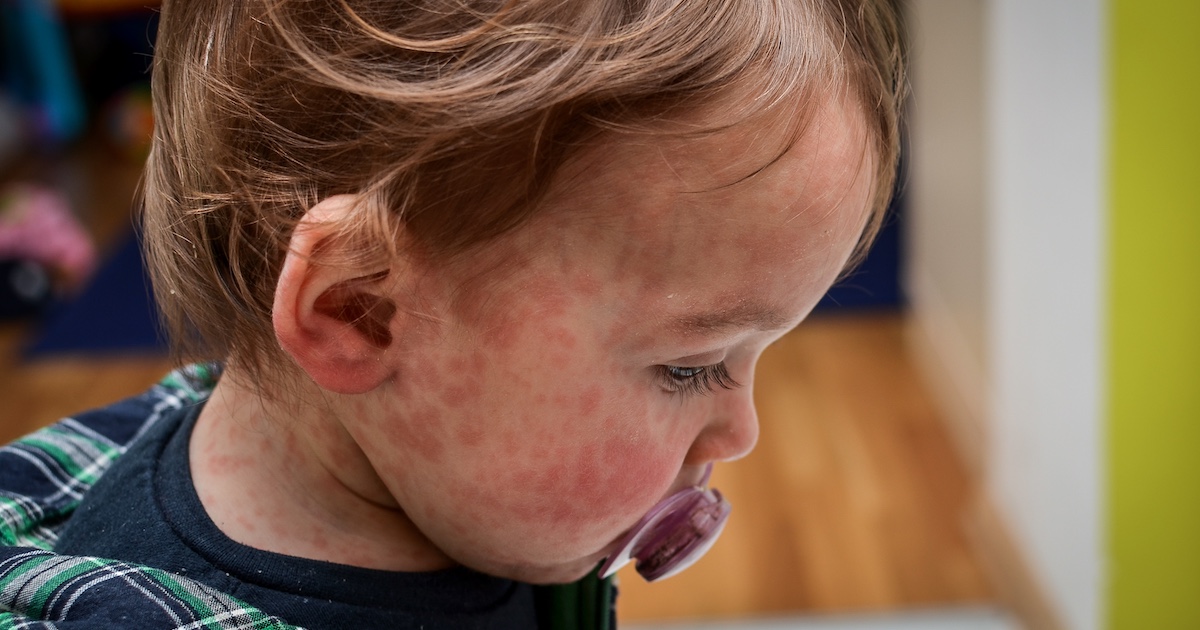
Measles is one of the most contagious diseases that humans have ever faced. For every one person who has measles, 12 to 18 more people will become infected if they are unvaccinated.
Right now, the U.S. is in the midst of the worst measles outbreak in decades. With vaccination rates recently declining, young children are especially vulnerable to infection.
With measles cases popping up, even in Philadelphia, read on to learn about the measles vaccine and why it is crucial to protect you and your loved ones.
Measles, also known as rubeola, is spread from person to person and is airborne. This means the virus travels through the air as small respiratory droplets. The virus can live in the air or on surfaces for up to two hours after a person infected with measles coughs, sneezes or even talks. Infection occurs if you inhale this contaminated air or touch an infected surface and then touch your eyes, nose or mouth.
A person infected with measles is contagious from four days before to four days after the rash appears – meaning they can spread the virus before they even know they’re sick. Up to 90% of unvaccinated people will get infected if exposed to someone with measles.
Make the best decision for you and your loved one’s health by debunking some of the common myths surrounding the measles and measles vaccine:
Get vaccinated! The benefits of protecting yourself and your loved ones against measles far outweigh the small potential for side effects associated with vaccines.
The MMR vaccine protects against measles, mumps, and rubella, while the MMRV vaccine additionally protects against varicella (chicken pox). In the rare chance you get the measles after being vaccinated, you will experience milder symptoms, a shorter time being sick and be less contagious.
The recommended dosage schedules for both MMR and MMRV vaccines are:
1st dose at 12-15 months old
2nd dose at 4-6 years old
Older children, adolescents, and adults with no evidence of immunity need 1-2 doses of the MMR vaccine, which should be given at least 28 days apart. The MMRV vaccine is not recommended after 12 years of age.
Protect yourself and others
vybe offers the measles vaccine at our Spring Garden and Havertown locations. If you or your child already show signs of having measles, visit your local primary care provider or pediatrician ASAP to discuss your symptoms and get guidance on the next steps.
If you do not have a primary provider or pediatrician or they are not available, contact the Philadelphia Department of Public Health or a hospital emergency department for further instructions.
Walk in or schedule an appointment online today to get vaccinated to protect yourself and your loved ones!
FIND YOUR VYBE